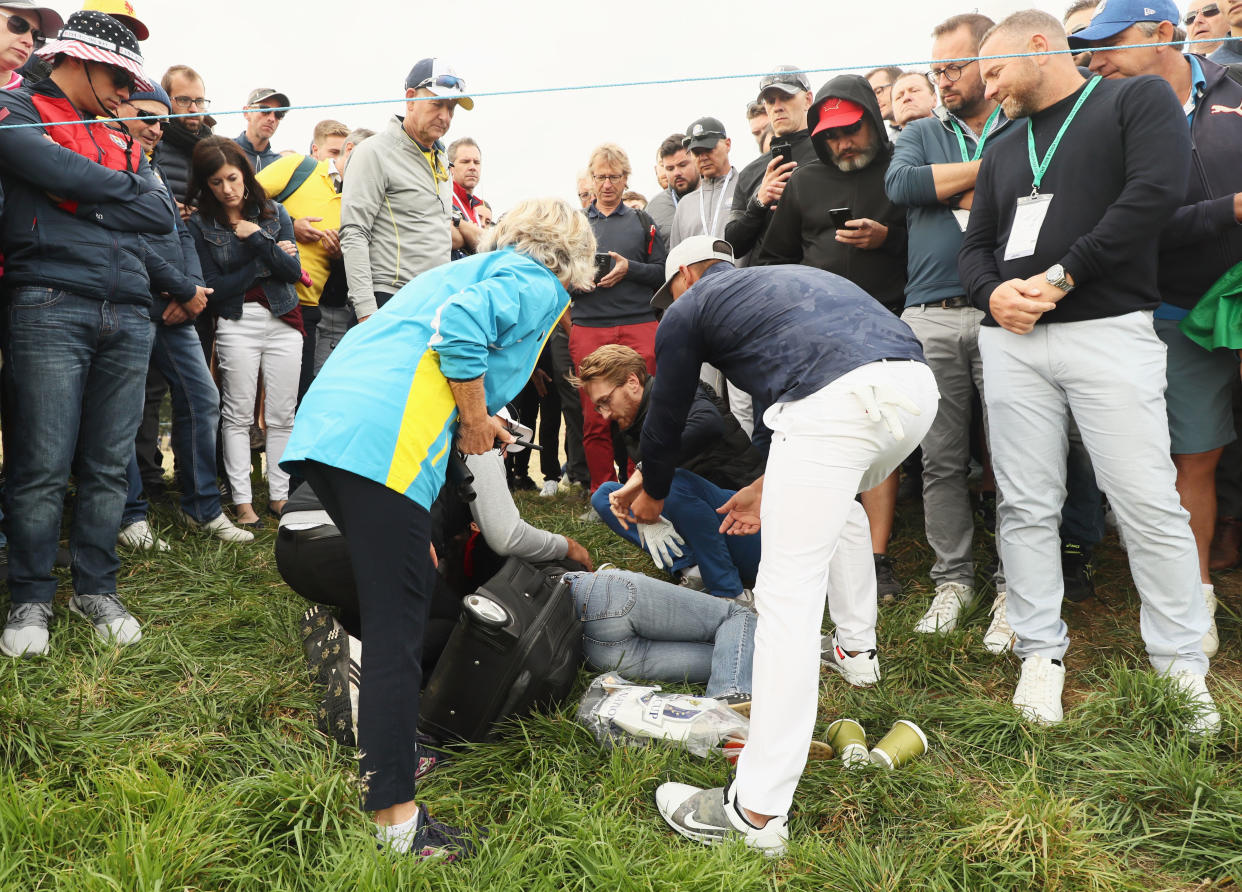This woman's eyeball exploded after she was hit by a golf ball

A woman who was hit in the eye by a stray shot at the Ryder Cup on Friday has learned that she has lost the use of her right eye. Specifically, her eye exploded.
“Doctors told me I had lost the use of that eye,” Corine Remande, 49, told Agence France-Presse after being hit by a Brooks Koepka tee shot. “It happened so fast, I didn’t feel any pain when I was hit.”
However, Remande said, “then I felt the blood start to pour. The scan on Friday confirmed a fracture of the right eye socket and an explosion of the eyeball.”
Remande praised Koepka for coming over to see if she was OK after she was injured. She says she downplayed her injury so he “would stay concentrated.” She’s considering legal action against Ryder Cup organizers because she says they didn’t contact her after the accident and there was “no warning shout from the course official when the ball was heading towards the crowd.”
Having an eyeball explode is freaky, but it’s not a medical term, Aaron Zimmerman, an associate professor of clinical optometry at the Ohio State University College of Optometry, tells Yahoo Lifestyle. Instead, doctors typically say that someone has a ruptured globe (i.e., eyeball). “Typically, you only get a ruptured globe from significant blunt trauma,” he says. “Pressure can be built up too high instantaneously and part of the eye ruptures.”
This can be treated, depending on how severe the injury is. “Generally, you want to close the wound as quickly as possible,” Jessica Heinke, of Family Eye Care of Woodstock and Lake Geneva, tells Yahoo Lifestyle. “Where the rupture is determines the treatment.” That may mean surgery to repair someone’s sclera (the white part of the eye) or cornea (the front of the eye), she says. Heinke also says there is “almost always” a retinal detachment — the back of the eye pulls away from its supportive tissue — with a global rupture.
As you can imagine, a global rupture can cause “pretty significant damage,” Zimmerman says. And, unfortunately, in some cases, a person may lose vision.
This malady isn’t common — Heinke says she’s seen it only twice — but it does happen. It’s just not something to lie awake at night worrying about. “We’re designed very well,” Heinke says. “The way that your bone structure is around your eyes, your forehead will usually jut out further than your eyeballs, and your cheekbone is a little protruding — these bones are meant to protect the globe of your eye.”
Read more from Yahoo Lifestyle
Why the first genital transplant is so important for war veterans
Laila Ali on the right time to get your kids’ eyes tested: ‘I think that surprises most parents’
Follow us on Instagram, Facebook, and Twitter for nonstop inspiration delivered fresh to your feed, every day.

